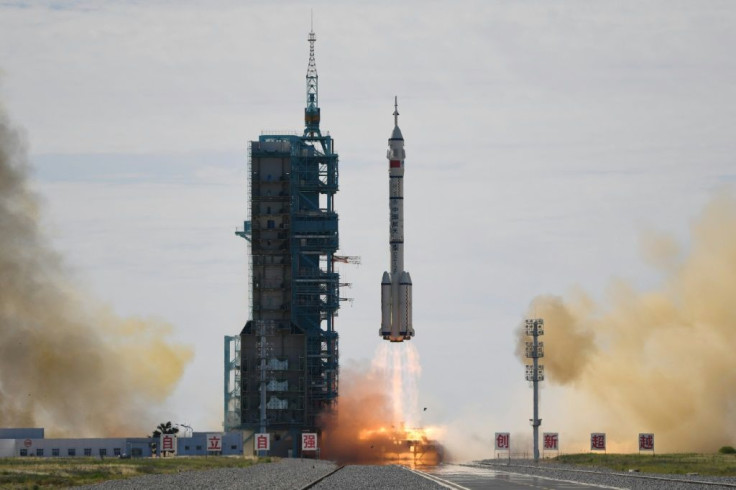China Launches 3 Astronauts To Its Own Space Station
KEY POINTS
- China launched three of its astronauts to space aboard a Long March 2F rocket from the Jiuquan Satellite Launch Center
- The mission is part of the country's efforts in competing with the U.S. in several areas of technology, including space exploration
- China's Tiangong space station is expected to be fully operational by 2022
China has just launched three of its astronauts to space.
At around 9:22 p.m. EDT, the Long March 2F rocket blasted off the surface of the planet — carrying China's first-ever astronauts — headed to its self-developed space station after five years.
The three astronauts, namely: Nie Haisheng, Liu Boming and Tang Hongbo, took off from the Jiuquan Satellite Launch Center. According to Zhang Zhifen, director of the center, the launch mission was a "complete success."
The launch marks China's first manned mission to space since 2016. It is also expected to be the longest since the astronauts are projected to stay at the Tiangong space station for a period of three months. According to The Guardian, previous missions to the station only lasted for about a month at most.
The mission is seen as a step in the country's efforts to make space exploration one of its top priorities, CNBC reported. China has been vocal with its intent to compete with the U.S. in several areas of technology, including space exploration.
Because China is prohibited from sending its astronauts to the International Space Station, the country set a goal of constructing a space station of its own, complete with separate sleeping areas and space-to-ground communications between its astronauts and scientists back on Earth.
China is projected to carry out 11 missions within this year and to complete the construction of the Tiangong space station as it expects to make the station fully operational by 2022.
In a Wednesday interview, China's astronaut crew said that they already expect the mission to be demanding.
“There are many tasks. The tasks are arduous and there will be many challenges,” said Nie Haisheng, the mission leader. Nie will be the oldest Chinese astronaut to head to outer space.
“Every step will contribute to the strength of the Chinese people and the peaceful use of space by mankind," he continued.
The crew's launch is seen as a great feat for China as it prepares for the 100th anniversary of the founding of the Communist party.

© Copyright IBTimes 2025. All rights reserved.





















